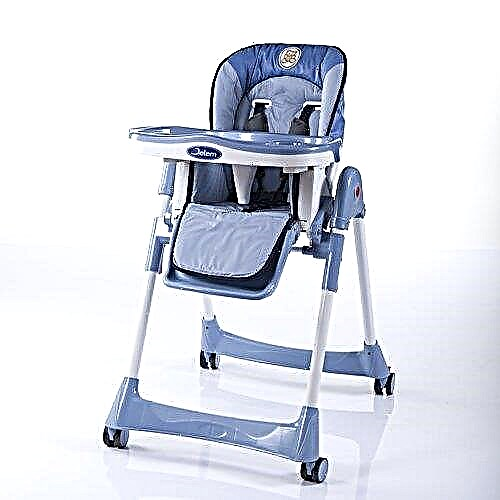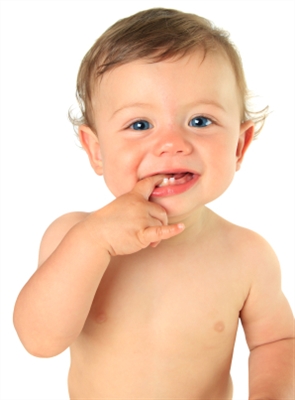
The appearance of a cough in a child is of concern to many parents, but this symptom does not always indicate a disease, especially if there are no fever or other signs of the disease. However, there are diseases that manifest themselves with a prolonged cough, so parents should know for what diseases a cough can occur and how to properly treat it.

When is coughing normal?
The cough protects the respiratory system from all harmful and unnecessary substances that can enter the lungs.
This reflex frees the mucous membrane from viruses, allergens, dust, bacteria and various harmful compounds. That is why intermittent coughing up to 10-15 times a day is normal. And if the parents do not notice any other negative symptoms, there is no need to run to the doctor or buy cough medicine.
In infancy, a cough can serve as a protective reaction against the ingress of tears or milk into the respiratory tract (a newborn may cry or choke on milk, and cough acts as a protective reflex). If your baby is teething, excess saliva can also enter the respiratory tract and trigger a cough.
The reason for frequent coughing in children, which is easy for parents to eliminate, is excessively dry indoor air. The sudden onset of a coughing fit is associated with the ingress of a foreign body into the respiratory tract, for example, if crumbs get into the child's trachea while eating.

Causes: cough as a symptom of the disease
- Allergy. A child may react with a cough to house dust, various foods, household chemicals, pollen, fluff in a pillow, and other allergens.
- Bronchial asthma. The disease is manifested by paroxysmal coughing, which often occurs at night.
- Infectious lesion of the bronchi or upper respiratory tract. If the causative agent is a fungus, cytomegalovirus or chlamydia, there may be no fever. Also, para-pertussis or tuberculosis can manifest as coughing fits without fever.
- Residual cough after suffering from diseases of the respiratory system, for example, after acute bronchitis. The baby can cough for several weeks after the end of the acute phase of the disease.
Cough and runny nose
The appearance of a cough and a runny nose without fever often indicates an exacerbation of chronic rhinitis, for example, after hypothermia. In the case of such rhinitis, snot flowing down the back of the throat causes a wet cough. In such a situation, it is important to direct treatment towards eliminating the common cold, for example, rinsing the nose with Aquamaris and instilling drugs that constrict the vessels.

How to treat?
Treatment of cough without fever should be comprehensive and aimed at the cause of the disease, since cough is only one of the symptoms. Children undergo various procedures, are treated with folk remedies, as well as medicines prescribed by a pediatrician. Let's consider all the methods of treatment in more detail.
Medicines
Among the medicines prescribed by a doctor for coughing without elevated body temperature, there are the following groups of drugs:
- Antitussive. Medicines of this group affect the cough center in the child's brain, therefore, their appointment is justified with a painful dry cough. Children can be prescribed Sinekod, Paxedalin, Omnitus, Libeksin, Codelac.
- Antihistamines. Such medicines are prescribed for children with allergic cough without fever. These include Fenistil, Erius, Tsetrin, Zodak, Zirtek, Suprastin.
- Expectorants. They are prescribed when sputum appears to improve its secretion. The most popular in childhood remedies are in the form of syrups, for example, Gedelix, Althea Syrup, Bronchicum, Licorice Syrup, Doctor Theiss, Prospan, Gerbion and others.
- Mucolytics. Such drugs affect the viscous phlegm, as a result of which it becomes thinner and easier to cough up. These include Ambrobene, Bromhexine, Flavamed, Bronchipret, ACC, Fluditek and other drugs.
- Antibiotics. Medicines of this group are indicated in the case of a bacterial infection, which can only manifest itself as a cough without fever. The selection of the necessary drug and its dosage is carried out by the pediatrician.
Procedures
- With a dry cough with normal body temperature, steam inhalation can be performed. During these procedures, the child breathes over a pot of boiling liquid, such as herbal decoction, or through a steam inhaler.
- Inhalation with a nebulizer will help to cope with a cough of any kind. This is the name of a special device capable of converting liquid drugs into small particles and delivering them to the respiratory tract. Without consulting a doctor, you can pour saline or Borjomi into the nebulizer. If the procedure is prescribed by a pediatrician, nebulizer inhalations can be performed with Lazolvan, Rotokan, Tussamag, Miramistin, Furacilin and other medicines.
- When coughing against the background of normal body temperature, warming procedures are allowed, for example, rubbing the child's feet with warming ointments or warm foot baths.
- If the cough is wet, a special massage called drainage will help to improve the production of phlegm. Its peculiarity is the position of the child's body - while the mother is massaging the back and chest, the baby's head should be below the body.


Folk remedies
Children with a lingering cough are advised to give:
- Tea with the addition of honey.
- Warm milk mixed with honey and a little soda or butter.
- Radish with honey.
- Decoction of oregano, marshmallow and mother and stepmother.
- Viburnum grated with honey or sugar.
- Infusion of pine buds.
- Onion syrup with sugar.

Features of the treatment of infants
If the mother suspects that a baby's cough may be a symptom of some kind of illness (it does not go away for a long time and worries the baby), the baby should be shown to the pediatrician.
No medicines for coughing can be given to infants without consulting a doctor. The pediatrician can prescribe such medicines that are allowed under the age of one year, such as Prospan, Gedelix, Herbion ivy, Linkas, Licorice syrup and others.

What does a child's frequent prolonged cough without fever indicate?
A persistent cough without other symptoms of illness for several weeks should be the reason for additional examination of the child.
The most likely causes of such a cough are an allergic reaction or too dry indoor air, so you need to take care of humidifying the air and go with your child to an allergist. In addition, a lingering cough is caused by psychological factors, which requires a visit to a psychologist.
Komarovsky's opinion
A popular pediatrician cites coughing as an important protective symptom in helping to clear excess mucus, bacteria, foreign objects, or viruses from the airways. In the treatment of cough, Komarovsky advises to focus on thinning sputum by moisturizing the air and drinking plenty of fluids.
A well-known physician claims that airing, frequent damp cleaning, drinking plenty of warm water, and humidifying the air help to cope with coughs as well as expectorants. Komarovsky recommends giving any medication only after consulting a doctor, since treatment should be aimed at the cause of the cough, and not at eliminating the symptom itself.
A few tips from the doctor in the following video.
Tips
- The nutrition of a child with a cough should be adjusted so that the child does not eat either too cold food or very hot food. Prepare nutritious yet light meals for your child. Emphasize a greater volume of drinking by giving your daughter or son compote, tea, milk, herbal decoction, fruit drink and other liquids.
- Ventilate the room where the baby is more often and humidify the air in it (preferably using a humidifier, but you can also use a damp cloth or containers filled with water). Cough should not be an obstacle to walking, because fresh air helps to relieve it and recover faster.
- If the child has a sudden fever, nausea and vomiting, the skin has acquired a bluish tint, it becomes difficult for the child to breathe or swallow, or any other alarming symptoms appear, do not hesitate to see a doctor. You cannot postpone the visit to the pediatrician if the cough is wheezing or wheezing.




